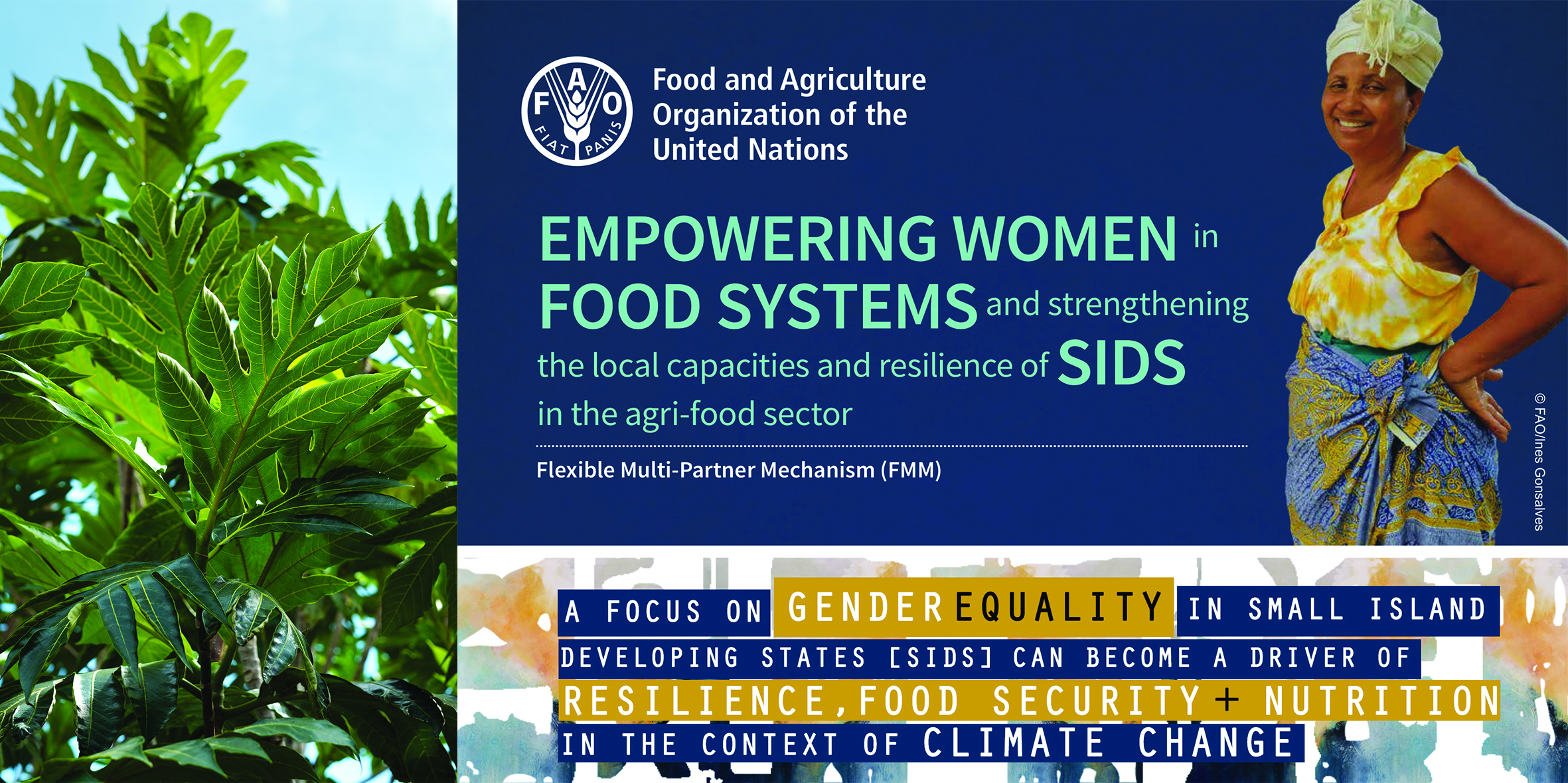November 2020
Addressing Gender Equality and Climate Risks in SIDS

The tourism sector is an important area common to all SIDS countries that is currently facing challenges due to COVID-19-related restrictions according to FAO’s Senior Gender Officer, Tacko Ndiaye IMAGE: FAO, PIFON
The FAO sub-programme – Empowering Women in Food Systems and Strengthening the Local Capacities and Resilience of SIDS in the Agri-Food Sector – is forming a series of webinars to address gender inequalities in food systems in small island development states.
Tacko Ndiaye, the Senior Gender Officer of FAO, says prevailing sociocultural norms commonly limit the ability of women to exercise power and autonomous decision-making.
“Women continue to be disadvantaged in their access to productive resources, innovative technologies, market information, financial services, education and training.”
“Addressing gender inequalities in food systems means ensuring that women and men participate equally in and benefit equally from agricultural markets and rural economies to better sustain and improve their livelihoods, while preserving the natural resource and adapting to climate change.”
She said: “The tourism sector is one important area that is common to all SIDS countries and that is currently facing big challenges due to COVID-19-related restrictions. The subprogramme is addressing tourism through the analysis of the sector and assessing how women can adapt their agri-food businesses to ensure food security.”
Earlier today, PIFON’s Senior Programme Manager, Lavinia Kaumaitotoya presented the impacts of COVID-19 on value chains and climate resilient agriculture in the Pacific.
“Overall, the COVID-19 pandemic has not has any discernible direct impact on the capacity of Pacific island countries to produce food agricultural products.”
“Despite a fall in overall income through the loss of jobs and the reduction in working hours, the overall domestic markets for food staples such as taro, cassava and sweet potato have not, as yet, significantly adversely impacted. These food staples are seen as necessities with a relatively low-income elasticity.”
Lavinia Kaumaitotoya said while the the impact of the pandemic on the market for horticultural products, spices and stimulants has varied, the cessation of all visitor arrivals has meant air freight capacity has drastically fallen with freight costs drastically risen.
“Depending on the product and location, the products most severely impacted are those linked to tourism such as pineapples in Fiji and spices in Vanuatu. It threatens the very survival of these important agricultural growth industries that make a substantial contribution to rural livelihoods and food security.”
“Fiji, Vanuatu, New Caledonia, the Cook Islands and Palau are heavily dependent on tourism, the sector is the largest direct employer of labour with significant multiplier impact effects throughout the rest of the economy. While tourism is less important in Tonga, Samoa and the Solomon Islands, it’s still of considerable significance being a major employer of labour.”
Lavinia Kaumaitotoya said visitor arrivals have ceased to all Pacific island countries is expected to take several years to recover to pre-pandemic levels. The close of the tourism sector she said has led to massive job losses through the linkage of tourism to the rest of the economy.
The first webinar, Gender Equality and Value Chains in SIDS, took place in September.
